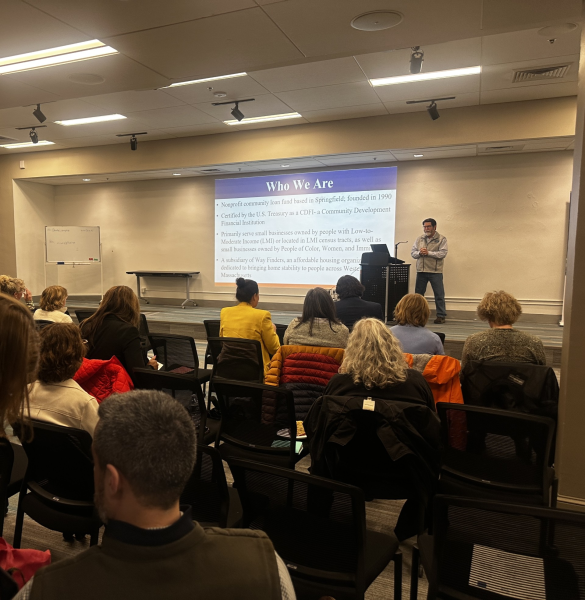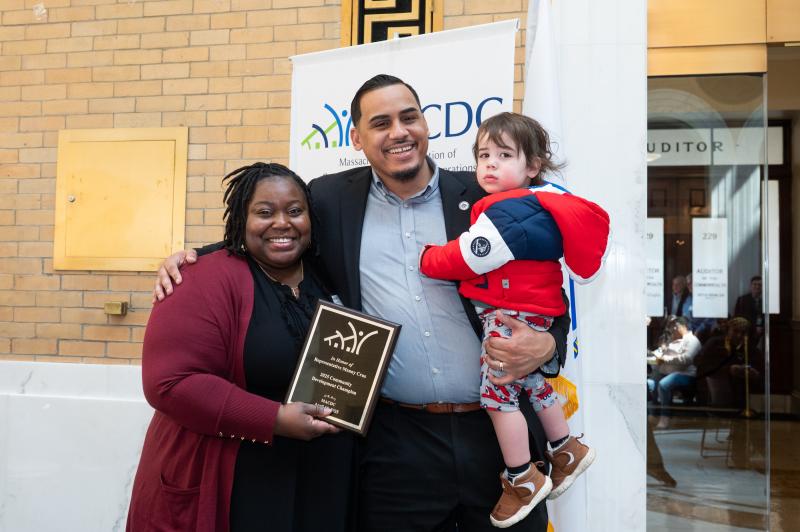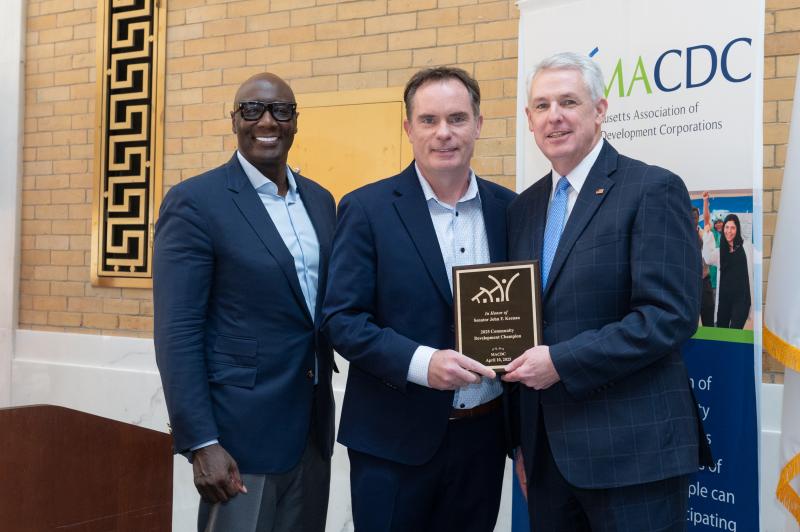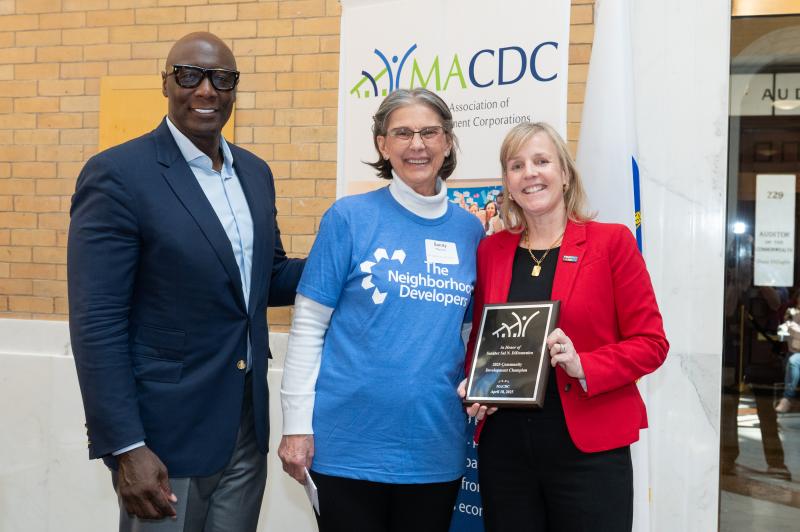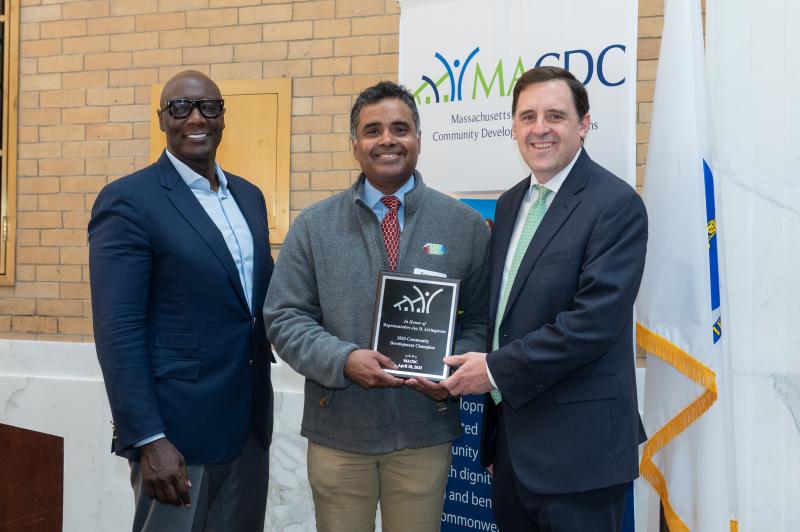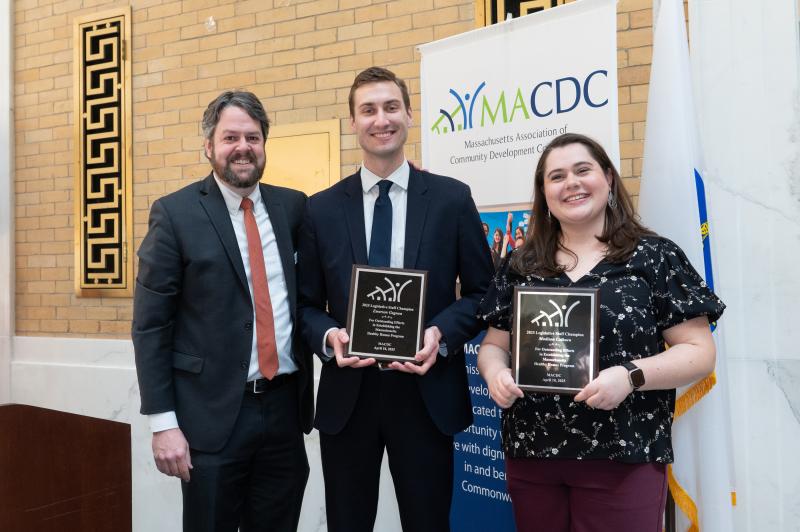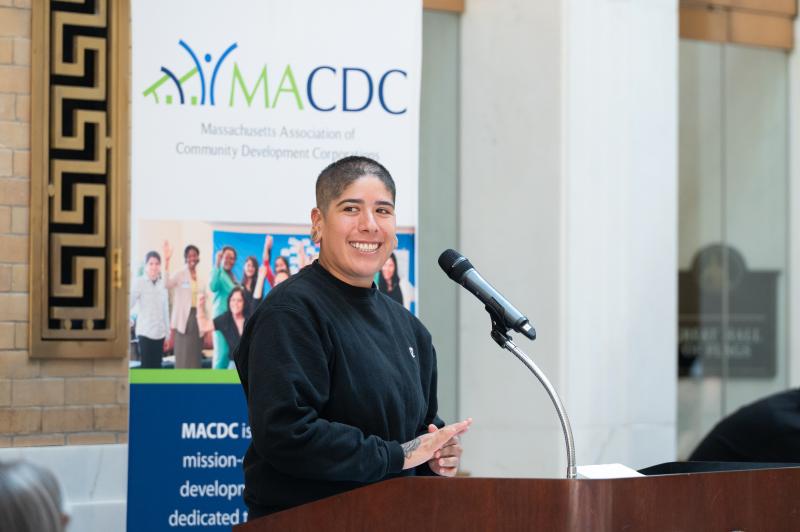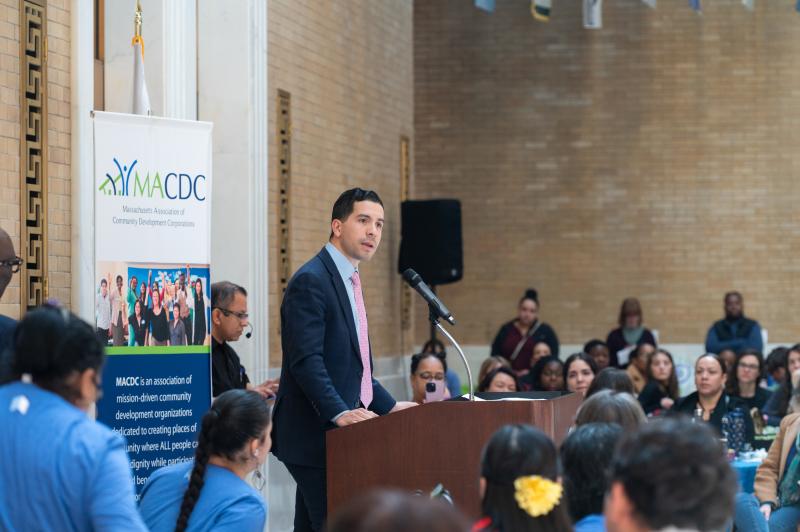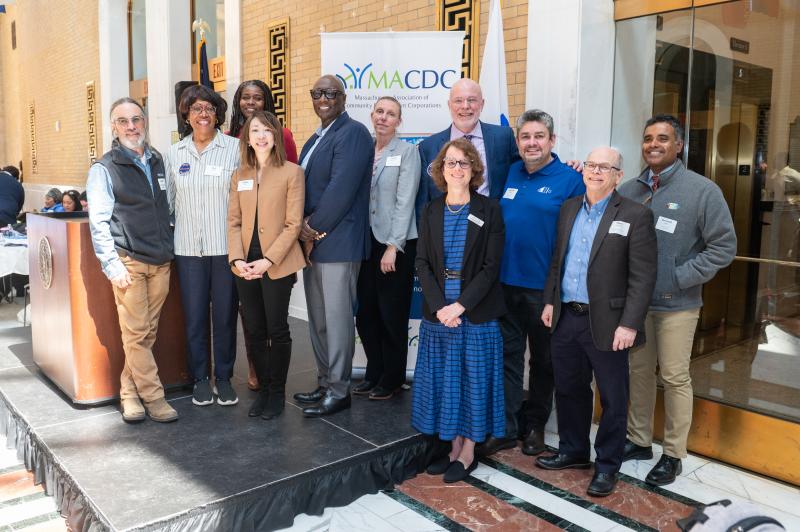It has been four years since MACDC launched the Racial Equity Pledge, and we feel that now is a good time to reflect on it and the impact it has had on our partner CDCs across the state. To do this, we met with a few representatives from our partner CDCs to ask them how adopting the pledge has affected their work. Inquilinos Boricuas en Acción (IBA) is a community development corporation based in Boston’s South End. IBA’s history is rooted in Boston’s Puerto Rican community and in organizing to protest displacement from Parcel 19 in 1968. Today, their main goal is to empower “individuals and families to improve their lives and achieve socio-economic mobility through high-quality affordable housing, education, financial and resident empowerment and arts programs” (ibaboston.org).
IBA adopted the MACDC Racial Equity Pledge since they “wanted to be a much more educated organization” according to Xavier Chavarria, IBA’s Chief Human Resource Officer. He goes on to explain that they wanted their “staff to be fully aware of what we have committed to and also to reinforce the equity and inclusion in our organization.” To adopt the pledge, IBA added it to their Strategic Plan, a dynamic document that serves as pillars to help guide them in the direction that they want to go.
IBA’s main goal for racial equity work is making sure that their staff is educated and trained. During one meeting with IBA’s internal DEI Committee (which also serves as their implementation team for MACDC’s Racial Equity Pledge), Xavier suggested finding IBA’s staff’s baseline knowledge on racial equity topics. He explains, “We wanted to know if people have heard about [DEI]. So we did a survey, for all of our staff. What we found was that a lot of our staff, while they were informed, didn't necessarily know the tenants, or principals of DEI.”
To accomplish this, IBA recently invested in professional development platform Udemy for their staff. Alongside professional development courses, Udemy also offers courses on racial equity topics. IBA plans to make a selection of these racial equity courses mandatory for staff, and if there are any gaps that they find, they plan to have racial equity consultants work with their staff to discuss these certain topics. Xavier
states that IBA made this investment to cover “all the avenues to ensure that we have a well-informed workforce to promote a more inclusive, empathic, and equitable organization environment. This is something that is going to be an ongoing process, since it doesn't just end with one presentation or one course. We feel that this is going to help us a lot.”
Alongside making this investment into their staff’s education, IBA has also made it clear that they are an equal opportunity employer and has also started to post salary ranges for their open positions. Xavier explains that they have also “added DEI questions into our performance reviews to make sure that all staff are doing their trainings and implement what they’ve been learning in the workplace. and then also to make sure that they're able to work well with our residents, because we serve a very diverse, multicultural community here at IBA in the South End, so we want to make sure that all of our staff are able to work very well with our community.”
Looking forward, IBA plans to keep their commitment to racial equity by ensuring that their implementation plans have longevity. Xavier states that racial equity at IBA
“is not something that's going to end. It's something that's going to [continue] for years to come, because it's important and the world is changing. You know, there's stuff happening every day, and IBA is committed to this pledge, that serves as a beacon for the organization.”
